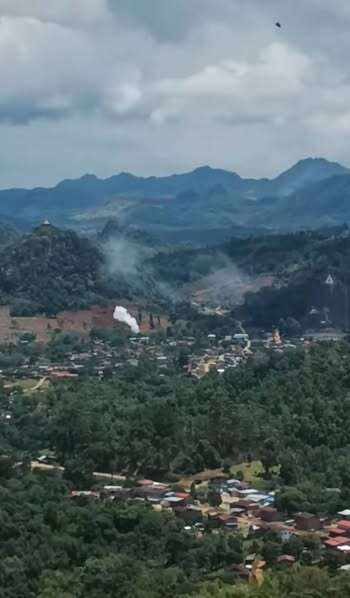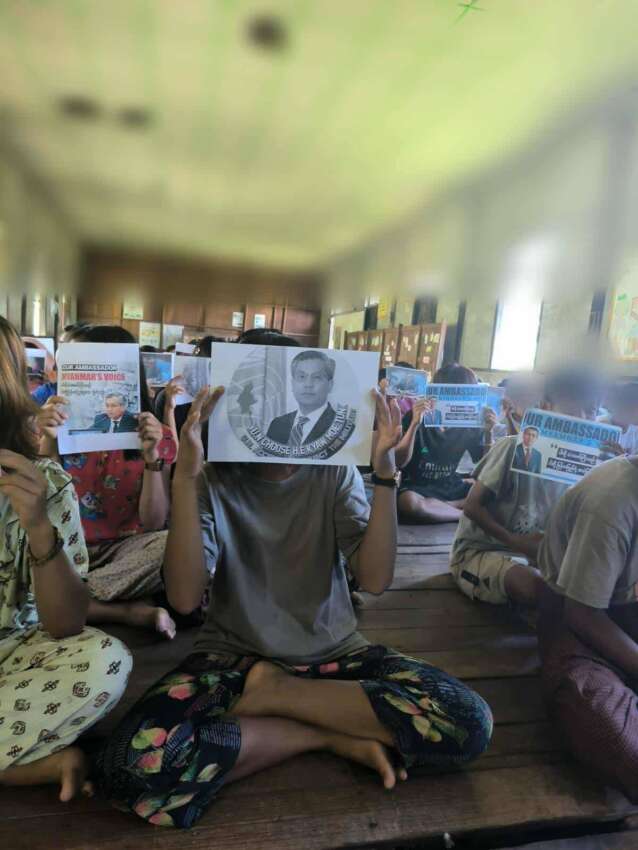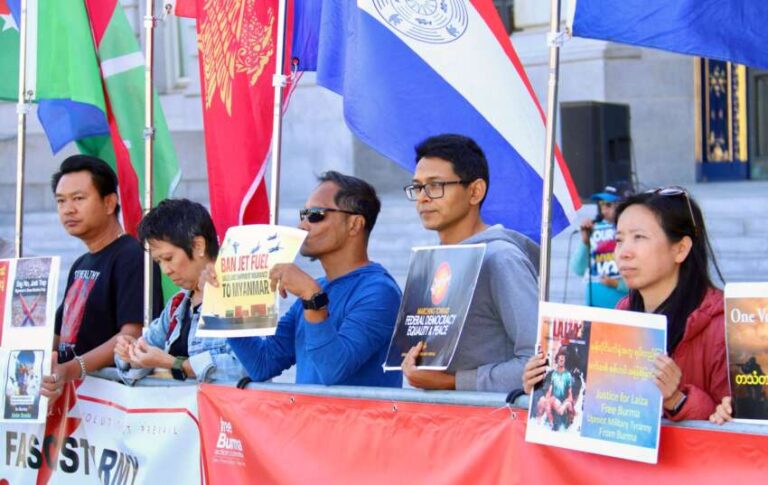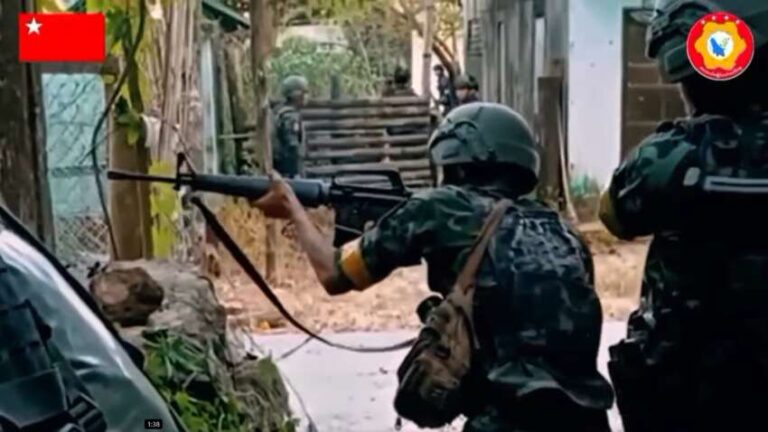
Local residents and military sources confirm that continuous fighting has erupted near Saung Pyaung village in Pinlaung Township, Southern Shan State, forcing thousands of civilians to flee. The clashes began on May 17th between the Karenni National Defense Force (KNDF) and military council troops, along with their affiliated Pa-O National Organization (PNO) militia, with daily battles continuing in the area. The revolutionary forces have successfully captured several military council and PNO outposts and taken some PNO soldiers as prisoners during the operations.
The military council and PNO forces are mounting fierce resistance while conducting repeated airstrikes in the area. Revolutionary forces have begun operations along the Pinlaung-Loikaw and Pinlaung-Naypyidaw roads, according to local sources. Pinlaung Township holds strategic military significance as it provides direct access to Naypyidaw, making it a crucial territory that revolutionary forces are attempting to control. Military analysts suggest this is why the area has become a key target for the resistance movement’s territorial control efforts.
As the fighting has intensified and the military suffers increasing casualties, the terrorist military council has responded by burning Pa-O villages and conducting aerial bombardments, while attempting to blame these actions on revolutionary forces. The military council consistently tries to create division between Pa-O and Karenni communities, while PNO officials remain unable to speak out against the military’s destructive actions against Pa-O villages. Local residents report that PNO leadership has failed to prevent or condemn these attacks on civilian areas.
The ongoing conflict has displaced thousands of residents from the Saung Pyaung area, forcing them to flee to safer locations despite it being farming season. Civilians are unable to tend to their agricultural work and live in fear of the military council’s airstrikes and village burnings. The situation has created significant humanitarian concerns as local people face both immediate security threats and disruption to their livelihoods, with many having to abandon their homes and farms during what should be a crucial cultivation period.



